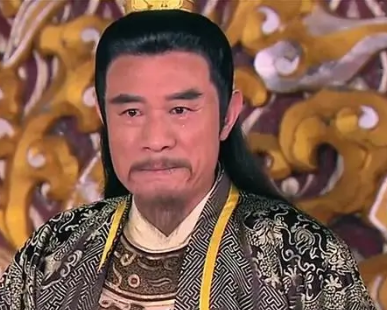In the ancient history of China, the Three Kingdoms period was an era filled with heroes, warriors, and intricate political schemes. Among these stories, the event of Liu Bei entrusting his son Liu Shan to Zhuge Liang has always fascinated later generations. Some believe it was a profound trust and expectation that Liu Bei placed in Zhuge Liang, while others see it as a test or political maneuver. So, what was Liu Bei's true intention in entrusting his son to Zhuge Liang? This article aims to unravel this mystery.

Firstly, we need to understand the context surrounding this event. In the 24th year of Jian'an (219 AD), during the early establishment of the Shu Han Kingdom, Liu Bei decided to personally lead an expedition against the Eastern Wu Kingdom to avenge Guan Yu. However, before setting out, he entrusted his son Liu Shan to Prime Minister Zhuge Liang. This action sparked much speculation, with some believing it was a profound trust in Zhuge Liang, while others saw it as a test.
What was Liu Bei's true intention in entrusting Liu Shan to Zhuge Liang? From historical records, it seems that Liu Bei's action may have encompassed multiple meanings. Firstly, Liu Bei knew that his health was declining, and he needed to find a reliable adviser for his heir Liu Shan. Among the officials in the Shu Han Kingdom, none was more suitable than Zhuge Liang. Therefore, entrusting Liu Shan to Zhuge Liang was undoubtedly a high recognition of his wisdom and loyalty.
Secondly, Liu Bei's action may have been to stabilize the morale of the military. In that era of frequent warfare, the morale and confidence of the troops were crucial for victory. By entrusting Liu Shan to Zhuge Liang, Liu Bei showed his trust and support for Zhuge Liang, thus enhancing the cohesion and combat effectiveness of the army.
Furthermore, Liu Bei's entrustment of Liu Shan to Zhuge Liang may have been a political strategy. In the tripartite structure of the Three Kingdoms period, Shu Han was in a relatively weak position. Liu Bei needed to ensure that the regime could operate smoothly during his expedition. By entrusting Liu Shan to Zhuge Liang, Liu Bei effectively placed the entire Shu Han Kingdom under Zhuge Liang's control, thus ensuring the stability of the regime.
In conclusion, Liu Bei's true intention in entrusting Liu Shan to Zhuge Liang likely encompassed multiple meanings: recognition of Zhuge Liang's wisdom and loyalty, stabilization of military morale, and political strategy. This event not only showcases Liu Bei's wisdom and foresight as a wise monarch, but also highlights Zhuge Liang's loyalty and responsibility as an outstanding strategist. Through exploring this period of history, we can gain a deeper understanding of the complexity of ancient Chinese warfare and the interactions and trust between historical figures. At the same time, we should also cherish the heroes who made great contributions to their country and nation, inheriting their wisdom and courage.
Disclaimer: The above content is sourced from the internet and the copyright belongs to the original author. If there is any infringement of your original copyright, please inform us and we will delete the relevant content as soon as possible.
































